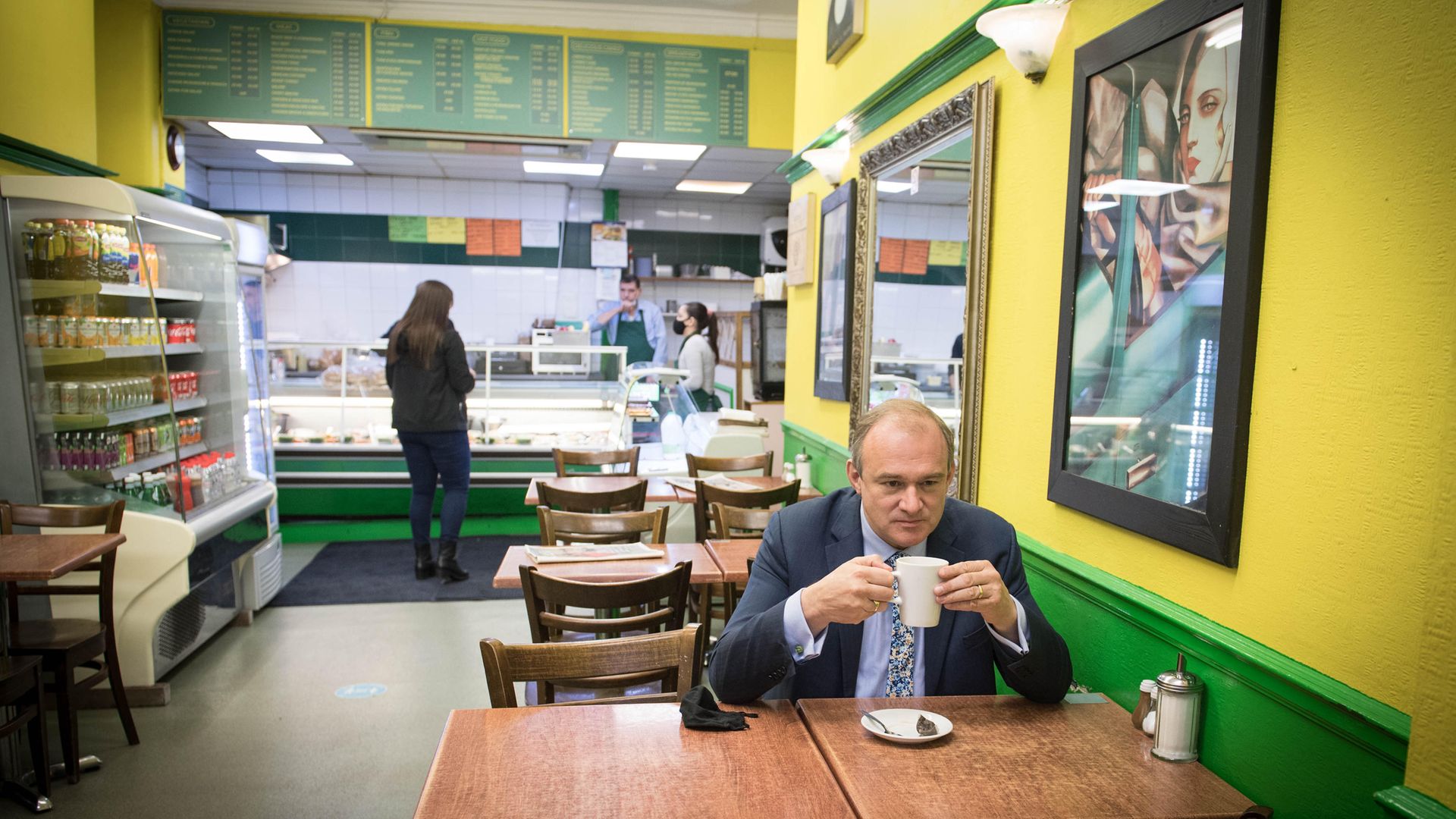Immigration, immigration, immigration. If there were any courage or honesty left in British politics, the main issue, the winning campaign slogan, the route to victory in the forthcoming general election would be just this.
And not how to limit it further, but how to increase immigration, massively.
The UK economy is crying out for more foreign workers to fill its vacancies. The situation is getting more and more difficult – and in the years ahead it is about to get considerably worse.
This state of affairs makes a nonsense of Vote Leave’s promise that we could slash net migration to tens of thousands since only highly paid, highly skilled migrants would be required in the brave new Brexit world. The dream of many Brexiteers – that leaving the EU would see great British vacancies filled by great British workers, with no more need for Hans, Lotte, Willy, Sacha, Britt, Enrico and all those who previously worked without frontiers – lies in tatters.
There is no public acceptance of this by our Brexiteer government, which continues to blather about targeting minimal net migration while privately rushing around with a box of sticking plasters, trying to cover up the gaps in our workforce as they appear.
It now claims to have a system that identifies which sectors of the economy need more foreign staff and then lowers the criteria needed to get a job in those sectors. The Migration Advisory Committee (MAC), a quango that seems specifically designed to hold back growth, has the job of telling the government which sectors of the economy need workers and can’t find them domestically. Even then, the government can and frequently does ignore its recommendations.
Compared with what we had pre-Brexit, this system is costly, time-consuming, interventionist, badly run, wrapped in miles of red tape, and is nothing more than a huge anchor holding the economy back. In the past, we just advertised for workers in the EU and they came – simple as that.
Once the referendum was over and the damage done, we should have spent billions improving education and training to try to fill some of the obvious gaps that were going to be caused by ending freedom of movement. Of course, we didn’t – and anyway, those things alone would never provide enough workers for the UK economy.
So now the Brexiteers are in full retreat. While publicly lecturing business on the need to conjure up new British employees out of thin air (“If I was a business manager, I would be looking to the British workforce in the first instance, seeing how I could get local people into my business, train them up, skill them to do the job,” sniffed Robert Jenrick last year), they are privately lowering the thresholds under which foreign workers can come to Britain. It’s quite the turnaround.
Last week, Sunak and co deigned to add a number of construction industry jobs to the growing list of occupations where there is a shortage of staff and no chance of finding British workers to do the work. It already includes care workers, care managers, architects, engineers (civil, chemical, mechanical, electronic, electrical, production and software), vets, IT workers, web designers, actuaries, economists, statisticians, dancers, artists, welders and lab technicians. Oh, and not forgetting the doctors and other health workers without whom the NHS would collapse overnight.
The construction roles list is not short either. It covers bricklayers, masons, roofers, roof tilers, slaters, carpenters, joiners, and plasterers. All will benefit from cheaper visas and more relaxed employment criteria now they are included.
The Home Office also added jobs in the fishing industry to the list, plus connected “elementary agriculture occupations”.
Rather than the high pay for high skills Brexit hype, foreign workers in shortage occupations can be paid as little as 70% of the job’s going rate, as long as they will earn a minimum of £20,960 per year. They will need a job offer from a business willing to sponsor them and will need to pass an English test. The upside is that they – or more likely, their employers – will pay a lower application fee for their skilled-worker visa.
With relocation costs on top, it means these workers can come to the UK, but only at great expense and bother to themselves and their employers. It is a system that makes sectors of the British economy look on aghast at the government making their lives more difficult.
Even when employers and sectors lobby and successfully campaign for exceptions to the rules, they still have an obstacle course of red tape to navigate.
And if the government or the MAC turns them down they suffer even more – for example, hospitality and catering, which is crying out for more foreign workers, has been denied them this time.
To help the hospitality sector out, the government has come up with what in Blackadder would have been described as a cunning plan. They want to negotiate individual agreements with certain EU states to allow young EU citizens to come here and work as baristas, au pairs and the like; in return those countries would be able to invite young Brits to go and work in their countries. It is a sort of poor man’s free movement that can be seen as a pathetic ruse to claim that immigration is not happening when in reality it is.
But like many of Baldrick’s schemes, this cunning plan has one tiny, fatal flaw. The European Commission will have a veto on any such deals, and will almost certainly veto this one. It is an arrogant, ignorant fantasy to believe that we can peel off individual EU countries and sign separate deals with them.
It is desperation over the current shortage of workers that leads the government to propose ridiculous policies like this, but pretty soon something is going to have to give.
Research for the Financial Times by the Institute for Employment Studies and the Financial Fairness Trust has found that as the UK population rapidly ages there will be 3.4 million fewer workers in the country by 2040.
They will retire and start using up increasing amounts of government money and resources. Pensions, healthcare and social care costs will soar.
Not only will we need to find the workers to look after these elderly people, we will also have to find new young workers to replace them in the economy and to pay the taxes to finance all those added costs.
This means over the next 17 years the UK will have to bring in more than 200,000 immigrants, each year and every year, just to replace retiring workers. Not to expand the economy, not to replace skills shortages, and not to run care centres and hospitals – 200,000 a year more just to replace those reaching retirement age.
In short, we need more immigration, not less, and we will do so for decades. But the government does not recognise this. It professes itself so shocked and disgusted by the existing number of immigrants that it is promising to slash it, at almost any cost. The exact opposite of what it needs to be doing.
The UK is not alone in this, of course. Many developed countries have a similar problem. Japan, Germany and a dozen others have failed to keep birth rates high enough to replace the ageing population, and now the consequences are being felt.
Italy is an interesting example. Until recently, the right wing government was talking tough on immigration, a populist policy in Italy, as it is here. Now the prime minister, Giorgia Meloni, is softening her hard-line rhetoric, and says her government is open to taking in more migrants.
“Europe and Italy need immigration,” she says. How right she is, and how sad that while even she can admit this, no one from this government would dare.
Sunak’s team is utterly torn between the populist rhetoric it spews out and the consequent need to be seen to bring down immigrant numbers, and the reality that the British economy needs a very high level of immigration to fill the gaping gaps in its workforce.
The government finds itself with a moribund economy where growth is almost non-existent, industries are crying out for workers to meet demand, there are huge skills shortages, a rapidly ageing workforce and falling productivity levels.
When your future wealth and prosperity are almost directly linked to the economy’s ability to increase productivity, this is a disaster happening before our very eyes.
The obvious answer is to increase immigration – both skilled and unskilled – and let businesses expand and flourish, watch demand in the economy increase, let it bring in the taxes to fund the NHS, and go for growth.
But the government has been taken over by Ukip, and so instead it sits around trying to find ways to bring down the immigration it really needs to increase, all while treating asylum seekers badly and dealing in mild xenophobia.
Its latest ruses are to make it harder for universities to recruit foreign students, even though they are almost the only thing keeping the further education sector’s head above water – and to accuse the Labour Party of being in league with criminal gangs. Pathetic stuff.
At least in Italy the far right has woken up and smelt the Lavazza; fighting immigration when you desperately need immigrants is a mug’s game.
But in our surreal politics, the government will go into the next election promising to bring immigration down further when it knows full well this is not in the national interest – or even possible.




